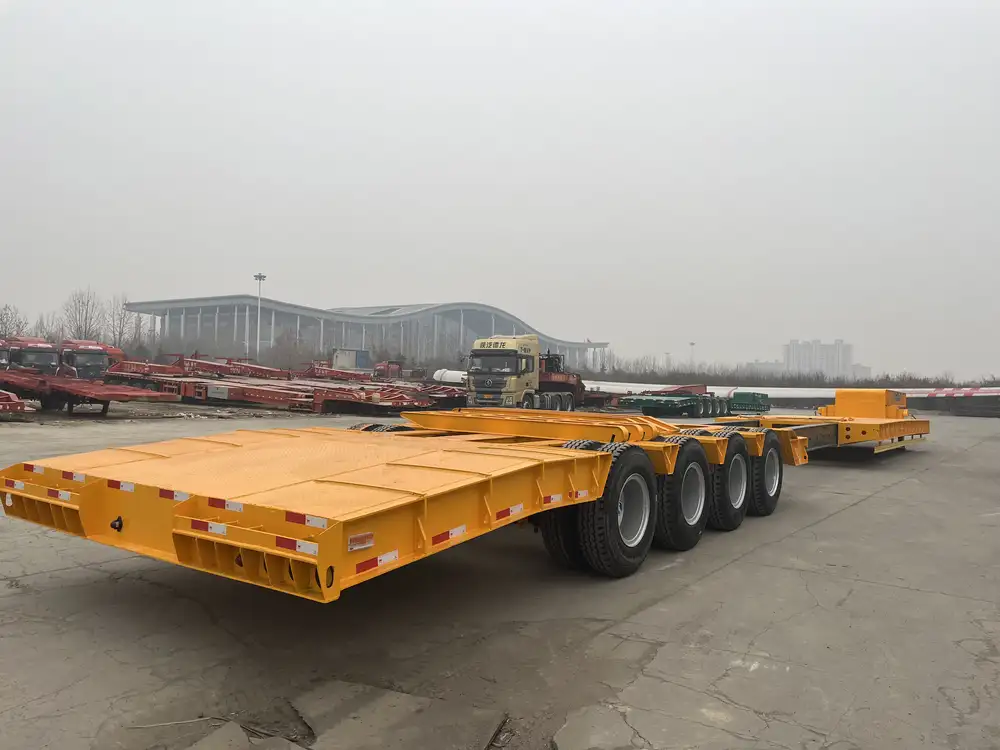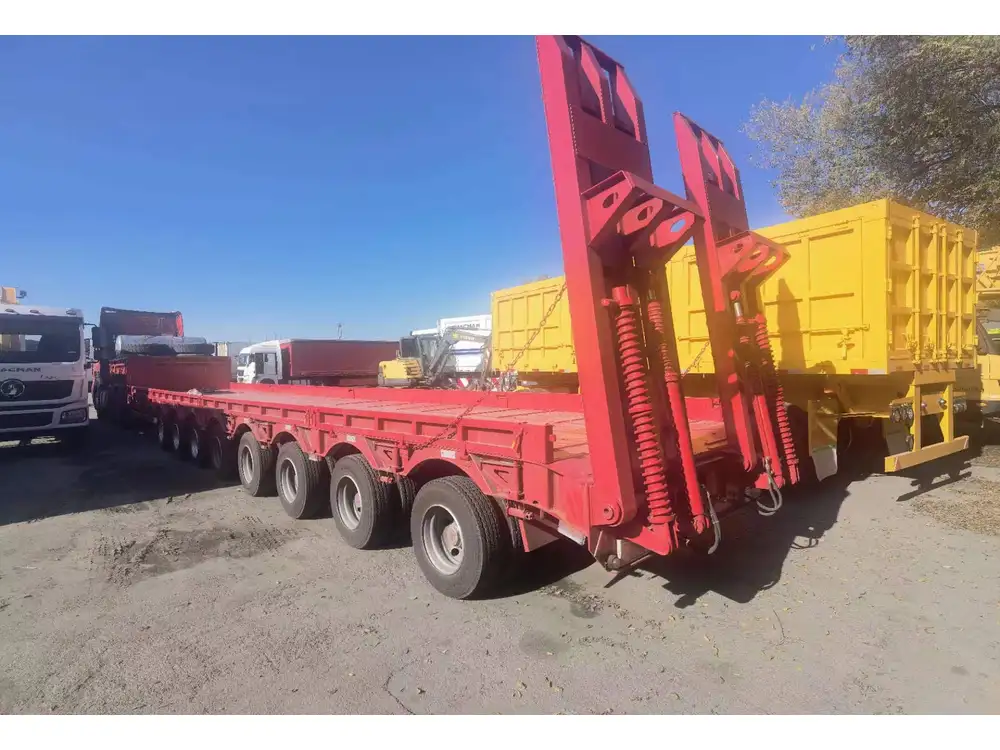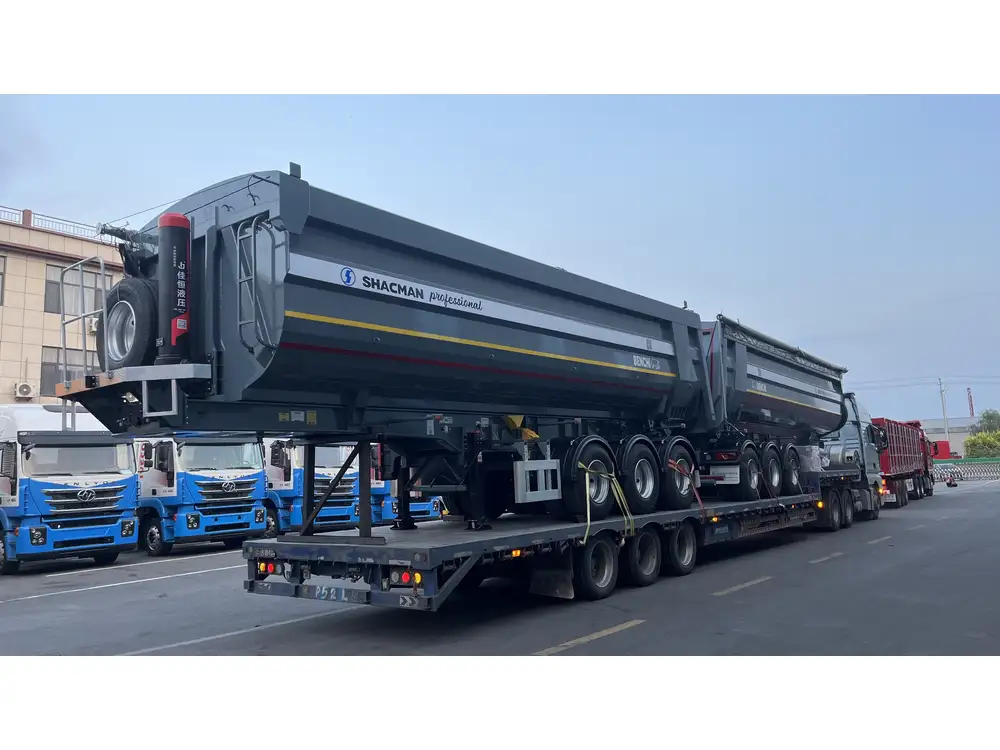In the competitive world of logistic solutions, American container and trailer manufacturing stands out for its innovation, quality, and versatility. This manufacturing segment plays a pivotal role in the transportation industry, and understanding the nuances involved is crucial for businesses seeking reliable and efficient transportation solutions. We will delve into the depths of American container and trailer production, exploring various types, specifications, and the key attributes that make them indispensable in today’s marketplace.
Understanding the Types of Containers and Trailers
The vast array of container and trailer options available can be overwhelming. Understanding these different types ensures that businesses select the most suitable solution tailored to their specific transportation needs.
1. Standard Dry Van Trailers
These trailers are the most commonly used in the freight industry. They are typically enclosed and designed to transport cargo without exposure to external elements.
- Dimensions: Standard dry van trailers usually measure 48 to 53 feet in length and are 102 inches wide.
- Capacity: They can hold anywhere between 26,000 to 45,000 pounds of cargo.
- Applications: Ideal for transporting goods such as retail products, machinery, and consumer goods.

2. Reefer Trailers (Refrigerated Trailers)
Designed for perishable goods, reefer trailers include temperature control systems, ensuring that temperature-sensitive products remain intact during transit.
- Temperature Ranges: Capable of operating from -20°F to 70°F.
- Commodities Transported: Commonly used for transporting food, pharmaceuticals, and other goods requiring temperature regulation.
3. Flatbed Trailers
Flatbeds lack sidewalls and a roof, making them exceptionally versatile for transporting oversized or irregularly shaped loads.
- Common Uses: Construction materials, heavy machinery, and vehicles.
- Regulatory Considerations: Requires special permits for oversized loads, which can complicate logistics.
4. Tanker Trailers
Tanker trailers are dedicated to transporting liquids such as fuels, chemicals, and food-grade liquids.
- Capacity: Can range from 5,000 to 10,000 gallons depending on the specifications.
- Safety Measures: Equipped with internal baffles to reduce liquid surge and ensure stability.

5. Specialty Trailers
These include lowboy trailers, car haulers, and equipment trailers, each tailored for specific tasks.
- Examples:
- Lowboys: Designed for heavy equipment transport, featuring a low ride height for easier loading.
- Car Haulers: Often used by dealerships and private sellers for transporting vehicles.
6. Intermodal Containers
Intermodal containers allow for seamless transfer between different modes of transportation: ship, train, or truck.
- Standard Sizes: Usually 20ft, 40ft, or 45ft long.
- Benefits: Streamlines logistics, reduces handling costs, and minimizes the risk of damage.
Key Features of Quality Trailers
When purchasing semi-trailers, several critical factors dictate the quality, durability, and performance of the product.

1. Material Quality
The durability of semi-trailers hinges on the materials utilized in their construction. Common materials include:
- Aluminum: Offers a favorable strength-to-weight ratio and good resistance to corrosion.
- Steel: Provides exceptional strength but adds to the weight.
- Composite Materials: Emerging within the industry due to their lighter weight and corrosion resistance.
2. Manufacturing Techniques
The methods employed in manufacturing can drastically influence the longevity and performance of a trailer.
- Welding Techniques: Critical in ensuring the framework is robust and capable of withstanding stress during operations.
- Painting and Coatings: Quality paint and sealants prevent rust and extend the lifespan of trailers exposed to harsh conditions.
3. Suspension Systems
A well-engineered suspension system enhances ride quality and load stability during transport.
- Types of Suspensions: Air ride, leaf spring, and mechanical suspensions cater to varying load types and provide differing levels of comfort and performance.

4. Braking Systems
A reliable braking system is imperative for both safety and compliance.
- ABS (Anti-lock Braking System): Helps maintain steering control during hard braking to prevent skidding.
- EBS (Electronic Braking System): Offers improved response time with electronic monitoring, enhancing safety.
5. Aerodynamic Design
Innovative trailer designs contribute to fuel efficiency and reduced wind resistance.
- Side Skirts and Tail Fairings: Modifications that can improve overall aerodynamics significantly.
- Impact on Fuel Consumption: A well-designed trailer can enhance fuel efficiency by up to 10%.
Evaluating Manufacturer Credibility
Choosing the right manufacturer is paramount in ensuring that your semi-trailer performs efficiently and adheres to regulations. To assist you in this decision process, consider the following aspects:

1. Certifications and Compliance
Verify that manufacturers comply with industry standards, such as:
- ISO Certification: Ensures consistent quality management.
- DOT Compliance: Adherence to the Department of Transportation regulations.
2. Customer Reviews and Testimonials
Researching existing customer feedback offers insights into the manufacturer’s reputation. Consider:
- Quality of Craftsmanship: Positive reviews typically cite the durability of the products.
- Customer Service: Inquire if customers had a satisfactory experience with post-purchase support.
3. Innovation and R&D
Leading manufacturers invest in research and development to innovate.
- Technological Advancements: Evaluate if they incorporate advanced technologies like telematics for fleet management.
- Sustainable Practices: Check for initiatives in environmentally friendly production methods.

Cost Considerations
When budgeting for a semi-trailer, it’s crucial to analyze all associated costs to ensure a sound investment.
1. Purchase Price vs. Value
- Initial Cost: While lower-priced trailers may be tempting, consider long-term value.
- Total Cost of Ownership (TCO): Evaluate maintenance, fuel efficiency, and resale value in your decision.
2. Financing Options
Explore the financing avenues available to ease the investment burden.
- Leasing vs. Buying: Analyze the benefits of each option based on operational and budgetary requirements.
- Manufacturer Financing: Some manufacturers offer in-house financing options, making it easier for buyers.

3. Insurance and Licensing
Maintaining insurance coverage is vital for protecting your investment. Additionally, ensure all licensing requirements are met to avoid legal complications.
Future Trends in Trailer Technology
As innovation accelerates, the trucking and transportation industry is poised for significant changes. Here are some trends to watch out for:
1. Electrification
With the push toward sustainability, electric trailers and trucks are gaining traction, particularly in urban areas where emissions regulations are stringent.

2. Telematics and Connectivity
Utilizing IoT devices, trailers will soon provide real-time monitoring of cargo status, geographical location, and maintenance needs, enhancing logistical efficiency.
3. Autonomous Trailers
Research and advancements in autonomous technology may see self-driving trailers integrating into logistics chains, optimizing routes, and reducing human error.
Conclusion
American container and trailer manufacturing represents a cornerstone of the transportation and logistics industry. Understanding the diverse range of products, their features, and evaluating manufacturers based on past performance and technological adoption are paramount for businesses seeking to excel in their operations. By harnessing this knowledge, businesses can make informed decisions, ensuring effective transportation solutions that foster growth and profitability.
The intricate landscape of semi-trailer manufacturing offers vast opportunities for businesses. Whether you require a durable flatbed trailer, a state-of-the-art reefer, or a specialized unit, recognizing the importance of quality, compliance, and innovation can position your logistics operations towards unparalleled success.



